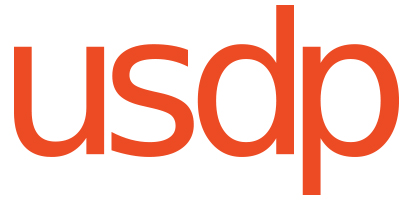You have a beautifully designed website with great content to share, but are people finding you and visiting the site? Even with the rise of social media, organic search is still a crucial website traffic driver, and it’s not going away anytime soon. That’s why it’s important to improve your search engine ranking so people can find you more easily than your competitors. That’s what search engine optimization (SEO) is all about.

Whether you know the basics of SEO or this is the first article you read, this list will give you an action plan of the best ways to improve search engine rankings. So if you are still asking, “How do I improve my search rankings?” keep reading.
Install Google Analytics and Google Search Console
Before you get started, it’s a good idea to install and use these website tools. Tracking your progress and current successes is important. Analyze every aspect of your website to increase traffic.
Google Analytics
Google Analytics is a free tracking tool. It can be very complex but there are many reports that are only a few clicks away that could be very helpful. Using the _Channels_ report will show you how your organic traffic compares to all other traffic to your website.

You can easily dig a little deeper by clicking on ‘Organic Search’ in this report to see what pages users are finding on Google (Landing Page). Unfortunately, most keywords will show up as (not provided). That is where Google Search Console comes in.
Google Search Console
While Google Analytics won’t give you a lot of specific keywords people search for, Google Search Console will. Google Search Console will tell you details of your organic search ranking. This means you can see how each page on your site ranks for specific keywords that users searched on Google. The dashboard will also warn you if your site has any technical issues that may hurt your organic search ranking.
Now that you know some details about how your content is performing, let’s get into the action items for your website. We could come up with endless tips and tricks to share, but we’ve boiled it down to 10 ways that will help increase your search ranking.
1. Keyword research
Use search data and research your competition to find the best targets for each page on your website. Depending on how big your website is and the resources you have available, start with the pages that have the most content, and are helpful for your customers. Some examples would be your top one or two product/service pages or a well-written blog post that provides detailed information your customers are looking for.
Strategically select which phrases you want your pages to rank well for
The pages you choose should have a clear message that is focused on one topic. Here is where you research what phrase your customers are using to search for this topic. There are many tools you can use to find out how people search (Google keyword research tool and you’ll find ads or lists of free and paid tools). This step could have a separate blog post dedicated to finding the right search phrase, but if we had to pick the most important piece of advice it is to choose a phrase that is specific and relevant. If it is specific, it will be several words long, and if it is relevant, it will appear multiple times throughout the page. Remember, don’t use the insider terminology you use, focus on what your everyday customer may search.
2. Write informative copy that people seek
You know your industry better than anyone. Write content that is helpful and also includes keywords and synonyms that get your website found by Google and other search engines. Include the keywords throughout the page to improve your search engine ranking, but don’t go overboard with keyword stuffing. Make sure it’s still readable for your visitors.
3. Title your page to help search engines and users
Search engines read the title tag, or meta title, as an important indicator of what the page is about. Your title tag is also the blue link everyone sees on a search engine results page, so be sure to include the keywords users search for. This title is different from the bold heading everyone sees on your webpage, which is typically the heading tag described in the next step. Therefore, if it helps get more clicks, you can write one title for the search engine results page (SERP) and a different heading for your webpage.

4. Build pages with HTML header tags
The first heading, or H1 tag, is the most important heading on the page. The H1 tag is typically the first thing a visitor reads on your webpage. Header tags are commonly used for styling but should instead be used for content organization. Making use of subheadings is one of the best ways to improve search engine ranking. For search engines, heading tags have more weight than regular copy and make skimming the page easy on a user. If you’re having trouble editing your heading tags, you’ll likely need a developer to update the page.
5. Give your URLs a purpose
The page URL is often ignored, so don’t let that be the case with you! The URLs should also benefit from keyword research. If you use a CMS like WordPress, the name of the page will appear in the URL. Before you launch the page, review what you named it and check the URL. You can update it to include the keywords you found in step 2. If you’ve already published the page, be sure to redirect visitors from your old page to the new page.
6. Internally link to other pages
As you’re writing copy for the page, you’ll often find yourself referencing other topics that you’ve already published. Internal linking is selecting a phrase and adding a hyperlink to the blog post or page you are referencing. These links will get some users to click through and read your other pages, but more importantly, search engines will crawl these links too. The keywords you hyperlink are called anchor text. This gives the user and search engines context about the page you link to so it is important to use meaningful keywords in the hyperlink.
Tip: It may be easier to read your copy after the writing is complete and actively look for opportunities to link to other pages. This is especially important if you know you have new content that you want people to read. It is best to develop an internal linking strategy that groups and cross-references all of the great content on your site. This can be challenging but rewarding for your search engine rankings.
7. Use ALT tags with all your images
Images visually support the message on the page. Users love them, and search engines do too. That’s why you should always use descriptive (keyword-rich) ALT tags for all your images. Alt tags also keep your site accessible, which could help you avoid an ADA lawsuit.
8. Mobile-friendly design and page speed
It’s no secret that more and more users are coming to your site from mobile devices. Make sure your website design is mobile-friendly. Also, optimize the images, code, and content to load each page quickly. Visitors will leave slow websites and search engines will notice. This is why having a fast website will improve your search engine ranking. You need great content, but website design and development are important when asking how to make your website rank.
9. Limit any duplicate content
Search engines like new and unique content. Find any duplicate content and make it substantially different or remove it altogether. There’s no advantage to saying the same thing over and over, and Google will penalize you for it. There are two likely scenarios where you’ll have duplicate content.
- You’ve created a lot of content over the years and forget that you, or someone else, already wrote a page or blog post about the same topic. This probably isn’t a complete duplicate, but if the content significantly overlaps, then you are better off combining it into one strong page.
- You don’t even realize it but your website has multiple versions of the same page. This could be from someone accidentally copying a page or you’ve created multiple versions for different languages or tracking purposes. You can let search engines know that you intentionally duplicated a page using a canonical URL. The Yoast plugin on Wordpress easily lets you assign canonical URLs to pages if you need them.
10. Create an XML Sitemap and monitor crawl errors
Submit Sitemap
Submitting a sitemap will help get pages indexed by search engines faster. If you’ve verified Google Search Console for your site in the first step, then you can submit your sitemap with Google. Bing also has a webmaster tools dashboard where you can submit a sitemap.
Crawl Errors and Warnings
Search engines also crawl websites through links on pages. Be sure to monitor any errors or broken links and fix them or create redirects to ensure your site has the best chance to rank well. There are free broken link checkers you’ll find on Google.
Start improving search engine rankings
If you can go down this list and put a check next to all ten items, chances are your website is already ranking well. If not, each one you can implement will begin to improve your search engine ranking. At USDP, we are here to help you get started on this list or take your SEO to the next level with our advanced SEO services. Achieving great search engine rankings through effective SEO techniques takes time and dedication. You now have your plan of action, so what’s holding you back?

